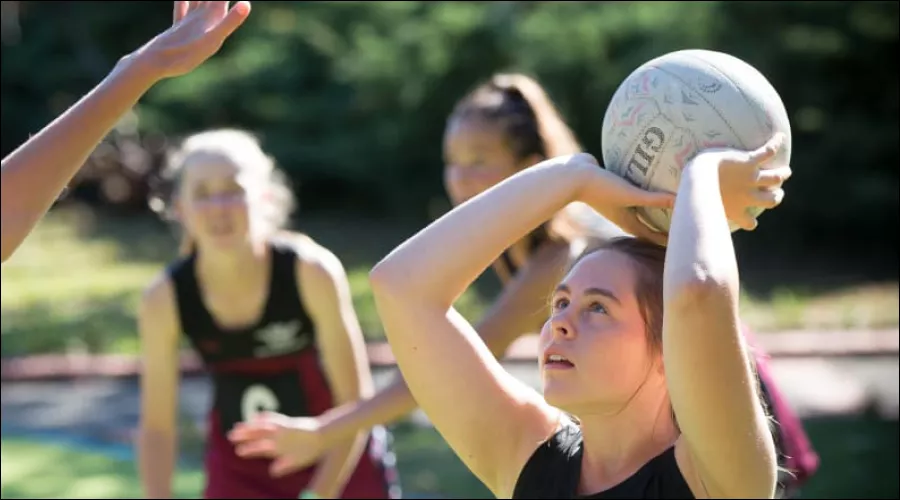As metropolitan Melbourne shrugs off its heavy cloak of coronavirus restrictions and prepares to rejoin regional Victoria in fashioning a Covid style of normal for 2021 and beyond, a question: what will that future look like for netball?
One intention is for it to include a greater emphasis on youth leadership and empowerment, given that one of the ramifications of the pandemic has been to amplify the need for the collective voice of our young people to be heard.
This month, too, everyone will get the chance to listen - when the annual Netball Victoria Leadership and Game Development conference includes a specific youth component for the first time.
“I’m a big believer in ‘you can’t be what you can’t see’, and kids want a voice,’’ says Jen Camilleri, Netball Victoria’s Affiliate Services Manager. “But the adults are like ‘yeah, yeah, we’ve got this covered!’.
“So we need to recognise the youth voice. It’s not just the child safe standards (required by state government legislation) and empowerment piece, but it’s also the fact they are the future of our game. They are our future administrators, they are our future leaders.
“There’s a lot of us who have been in this game a long time who think we know what our young people want, but that’s not always necessarily the case, so it’s important that they have a voice in what the future looks like, and they become invested, they’ve got buy-in.’’
Netball New Zealand is a pace-setter in this regard. Just over a year ago the national governing body established its inaugural Youth Board. Then, in May, one of the founding members, Georgia Trent, was appointed as an intern on NNZ’s executive board.
Trent is 19.
She will be the keynote speaker on November 20, the conference's closing night.
The session will also feature a presentation from Mad4Leaders on the responsibility of youth leaders to help keep their peers engaged with the game - particularly given the pre-COVID dropout rate of around 30% in the 15-17-year-old age group is expected to rise even further when organised sport resumes.
Camilleri will then provide activation mechanisms and resources. “Utopia for me is that every single association and league has a youth committee attached to it,’’ she says.
“It’s never been more important than now because we already have the potential to lose so many teenagers, and because you haven’t had that connection with your club all year, it's now going to be easier than ever just to not go back.’’
From across the Tasman, Georgia Trent will share some insights into our netball neighbours’ forward-thinking approach.
“We created our Netball New Zealand Youth Board with the aim to provide an environment where youth voice is championed, and from there I’ve been appointed (as an intern) onto the Netball New Zealand board, which is quite an amazing step, really, towards ensuring that youth voice is heard throughout all levels of decision-making,’’ she says.
“So I’ll be talking to these points, and how we can genuinely engage you - not a 'token gesture, tick box opportunity to seem diverse and inclusive', or any of those things. It’s 'actually listen and engage with young people and the opportunities that creates'.’’
Trent’s own story, and netball involvement, began in a small town in the middle of the North Island, and continued with her move away to boarding school at the age of 11.
“I was so nervous and shy and I knew no-one but that really shaped me as a person; I became so independent and had to be really confident in myself,’’ says the now-accomplished public speaker who would graduate in 2018 as head prefect.
“So throughout school I definitely had some amazing opportunities. Most of them were through netball.’’
Trent is finishing the second year of a sports management degree at Dunedin’s Otago University; her formal education in governance dove-tailing with practical exposure via both the youth and senior NNZ boards.
She still plays club netball, coaches a high school team, umpires “when I get roped into it!”, and is now working on a Fast5 youth innovation project. Questions will be asked, and the program tailored to the answers. Which, says Trent, is how it should be.
The teenager shares the “can’t be what you can’t see” philosophy, and hopes to be a visible example that pathways exist beyond the most obvious: playing, coaching and umpiring.
“I’m not the captain of the Silver Ferns or anything, but there are other ways to lead, and you don’t have to have a title to be a leader,’’ says Trent.
“In terms of youth engagement, that’s a global trend that’s not isolated to netball or to Victoria or to New Zealand, it’s happening everywhere. It’s so complicated and the world is changing so fast that it’s hard to keep up, so we just kind of have to strip it back.
"Whether it’s changing it up a bit and making it less formal... maybe they don’t want to be wearing a netball dress. Maybe they want to wear shorts or tights.
“Those are such small things that we can change - or just be more open to, rather than being such a traditional netball product - that might make young people want to come back and play, or play for the first time. And there’s no reason why we can’t.’’
Find more information about the Youth Leadership Program at the Leadership and Game Development Conference here.
